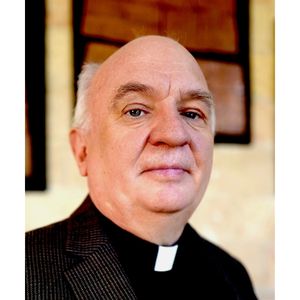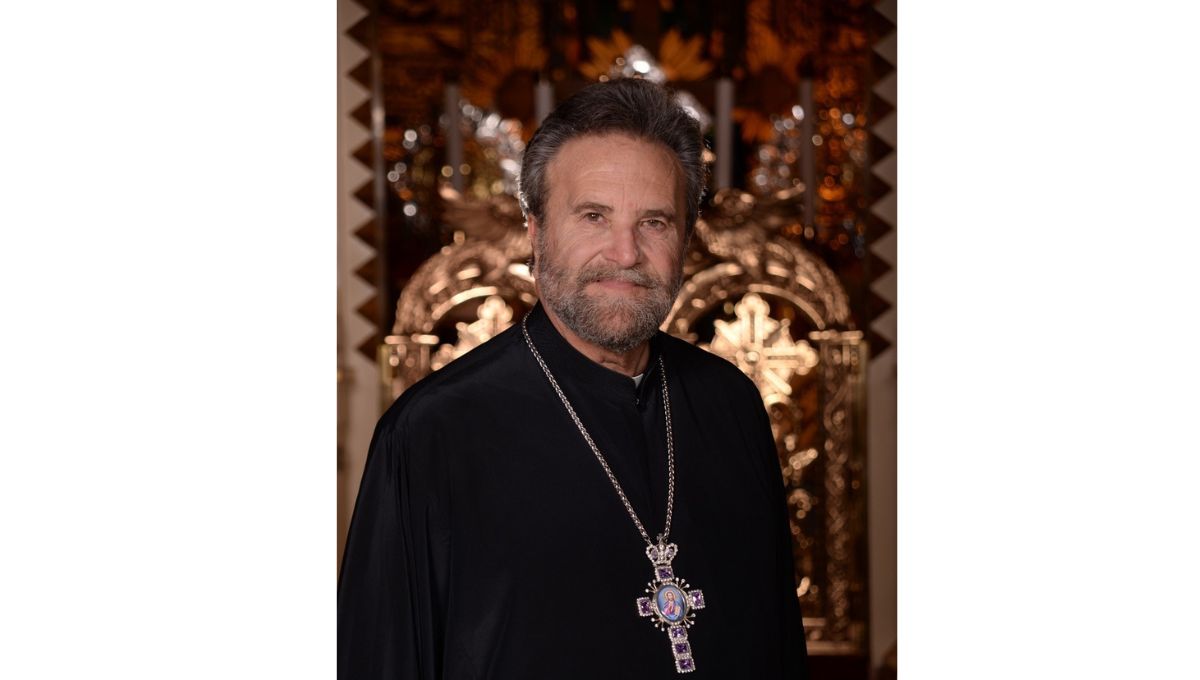This great Father and Teacher of the Church was born in 329 in Arianzus, a village of the second district of Cappadocia, not far from Nazianzus. His father, who later became Bishop of Nazianzus, was named Gregory (commemorated Jan. 1), and his mother was named Nonna (Aug. 5); both are among the Saints, and so are his brother Caesarius (Mar. 9) and his sister Gorgona (Feb. 23). At first he studied in Caesarea of Palestine, then in Alexandria, and finally in Athens. As he was sailing from Alexandria to Athens, a violent sea storm put in peril not only his life but also his salvation, since he had not yet been baptized. With tears and fervour he besought God to spare him, vowing to dedicate his whole self to Him, and the tempest gave way to calm. At Athens Saint Gregory was later joined by Saint Basil the Great, whom he already knew; but now their acquaintanceship grew into a lifelong brotherly love. Another fellow student of theirs in Athens was the young Prince Julian, who later as Emperor was called the Apostate because he denied Christ and did all in his power to restore paganism. Even in Athens, before Julian had thrown off the mask of piety; Saint Gregory saw what an unsettled mind he had, and said, "What an evil the Roman State is nourishing" (Orat. V, 24, PG 35:693).
After their studies at Athens, Gregory became Basil's fellow ascetic, living the monastic life together with him for a time in the hermitages of Pontus. His father ordained him presbyter of the Church of Nazianzus, and Saint Basil consecrated him Bishop of Sasima (or Zansima), which was in the archdiocese of Caesarea. This consecration was a source of great sorrow to Gregory, and a cause of misunderstanding between him and Basil; but his love for Basil remained unchanged, as can be plainly seen from his Funeral Oration on Saint Basil (Orat. XLIII).
About the Year 379, Saint Gregory came to the assistance of the Church of Constantinople, which had already been troubled for forty years by the Arians; by his supremely wise words and many labours he freed it from the corruption of heresy, and was elected Archbishop of that city by the Second Ecumenical Council, which assembled there in 381, and condemned Macedonius, Archbishop of Constantinople, the enemy of the Holy Spirit. When Saint Gregory came to Constantinople, the Arians had taken all the churches and he was forced to serve in a house chapel dedicated to Saint Anastasia the Martyr. From there he began to preach his famous five sermons on the Trinity, called the Triadica. When he left Constantinople two years later, the Arians did not have one church left to them in the city. Saint Meletius of Antioch (see Feb. 12), who was presiding over the Second Ecumenical Council, died in the course of it, and Saint Gregory was chosen in his stead; there he distinguished himself in his expositions of dogmatic theology.
Having governed the Church until 382, he delivered his farewell speech - the Syntacterion, in which he demonstrated the Divinity of the Son - before 150 bishops and the Emperor Theodosius the Great; in this speech he requested, and received from all, permission to retire from the see of Constantinople. He returned to Nazianzus, where he lived to the end of his life, and reposed in the Lord in 391, having lived some sixty-two years.
His extant writings, both prose and poems in every type of metre, demonstrate his lofty eloquence and his wondrous breadth of learning. In the beauty of his writings, he is considered to have surpassed the Greek writers of antiquity, and because of his God-inspired theological thought, he received the surname "Theologian." Although he is sometimes called Gregory of Nazianzus, this title belongs properly to his father; he himself is known by the Church only as Gregory the Theologian. He is especially called "Trinitarian Theologian," since in virtually every homily he refers to the Trinity and the one essence and nature of the Godhead. Hence, Alexius Anthorus dedicated the following verses to him:
Like an unwandering star beaming with splendour,
Thou bringest us by mystic teachings, O Father,
To the Trinity's sunlike illumination,
O mouth breathing with fire, Gregory most mighty.









 Trinitas television, the only television station broadcasting 24/7 within the Orthodox world, and established under the initiative of Patriarch Daniel of the Romanian Orthodox Church, interviewed Rev. Dr. Eugen J. Pentiuc about Scripture in Orthodoxy.
Trinitas television, the only television station broadcasting 24/7 within the Orthodox world, and established under the initiative of Patriarch Daniel of the Romanian Orthodox Church, interviewed Rev. Dr. Eugen J. Pentiuc about Scripture in Orthodoxy.
 It is with great respect and affection that we announce the retirement of Very Rev. Fr. John Bakas from the historic St. Sophia Cathedral.
It is with great respect and affection that we announce the retirement of Very Rev. Fr. John Bakas from the historic St. Sophia Cathedral.